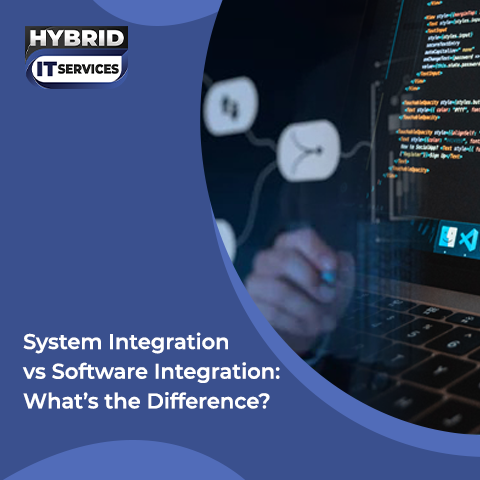Businesses are continually seeking ways to improve communication, enhance productivity, and reduce costs. One technology that has revolutionized business communication is Voice over Internet Protocol (VoIP). VoIP has rapidly become a cornerstone for modern business operations, replacing traditional phone systems with a more efficient, versatile, and cost-effective solution. Let’s explores what VoIP is, how it works, and the numerous benefits it offers to businesses of all sizes.
What is VoIP and How Does It Work?
Voice over Internet Protocol (VoIP) is a technology that allows voice calls to be made using an internet connection instead of a traditional phone line. VoIP converts voice signals into digital data packets, which are then transmitted over the internet. When you speak into a VoIP-enabled device, your voice is digitized, sent over the internet, and converted back into sound at the receiving end.
To use VoIP, you need a stable internet connection, VoIP software or hardware (such as VoIP phones, computer software, or mobile apps), and a VoIP service provider that offers the necessary infrastructure and support.
Benefits of Using VoIP for Business
Let’s discuss core benefits of Using VoIP for Business:
Cost Savings
One of the most compelling advantages of VoIP for businesses is the significant cost savings. Traditional phone systems can be expensive, particularly when it comes to long-distance and international calls. VoIP, on the other hand, significantly reduces these costs by transmitting calls over the internet. Businesses can enjoy unlimited calling for a fixed monthly fee, making budgeting simpler and more predictable.
Additionally, VoIP reduces infrastructure costs. By consolidating voice and data networks, businesses eliminate the need for separate phone lines, reducing both installation and maintenance expenses. There's also no need for expensive hardware; existing devices like computers and smartphones can be used to make VoIP calls, further minimizing investment.
You May Also Read: How Much Does VoIP Cost? A Complete Breakdown
Enhanced Flexibility and Mobility
VoIP provides unparalleled flexibility and mobility, essential for today's dynamic work environments. It enables employees to make and receive calls from anywhere with an internet connection, supporting remote work and ensuring seamless communication regardless of location. This is particularly beneficial in an era where remote work and telecommuting are becoming the norm.
Moreover, VoIP systems offer unified communications, integrating voice calls, video conferencing, instant messaging, and email into a single platform. This unification streamlines communication and enhances collaboration, making it easier for teams to stay connected and productive.
Advanced Features
VoIP systems come packed with advanced features that traditional phone systems cannot match. These features include call forwarding, voicemail-to-email, call recording, and auto-attendants, which improve call management and customer service. VoIP is also highly scalable, allowing businesses to easily add or remove users and lines as needed.
Call Management Features: VoIP offers a wide range of features that traditional phone systems cannot match, including call forwarding, voicemail-to-email, call recording, and auto-attendants. These features improve call management and customer service.
Scalability: VoIP systems can easily scale up or down based on the business’s needs. Adding new users or lines is simple and cost-effective, making it ideal for growing businesses.
Integration with Other Systems: VoIP can integrate with Customer Relationship Management (CRM) systems, helping businesses manage customer interactions more effectively and improve customer service.
You May Also Read: VoIP vs. Traditional Phone Systems: A Comprehensive Comparative Analysis
Improved Productivity
VoIP enhances productivity in numerous ways. Its ability to facilitate video conferencing and virtual meetings enables teams to collaborate more effectively, regardless of geographical barriers. This leads to faster decision-making and project completion.
- Enhanced Collaboration: VoIP’s ability to facilitate video conferencing and virtual meetings enables teams to collaborate more effectively, regardless of geographical barriers. This leads to faster decision-making and project completion.
- Time-Saving Features: Features like voicemail-to-email and call routing save time by ensuring that important messages are received promptly and calls are directed to the right person or department without delay.
Reliability and Quality
A common misconception about VoIP is that it might compromise call quality. However, with a stable internet connection, VoIP offers high-definition call quality that often surpasses traditional phone lines. This ensures clear and professional communication, which is crucial for business interactions. VoIP systems are also less susceptible to disruptions caused by physical damage to phone lines.
In the event of an office move or a natural disaster, calls can be easily redirected to ensure business continuity. This reliability is a significant advantage for businesses that cannot afford downtime in their communication channels.
You May Also Read: VoIP Development and Its Types of Service Providers: A Comprehensive Guide
Environmental Benefits
Adopting VoIP also offers environmental benefits, contributing to a more sustainable business model. By minimizing the need for physical hardware and reducing the energy consumption associated with traditional phone systems, VoIP helps lower a business's carbon footprint. The reduction in physical infrastructure not only saves costs but also aligns with corporate social responsibility goals, making VoIP an environmentally friendly choice.
Conclusion
As businesses continue to embrace digital transformation, VoIP stands out as a powerful tool that enhances communication and supports growth. By adopting VoIP, businesses can stay competitive, efficient, and responsive in an ever-evolving marketplace. Embracing VoIP is not just a technological upgrade but a strategic decision that can drive long-term success and sustainability.






